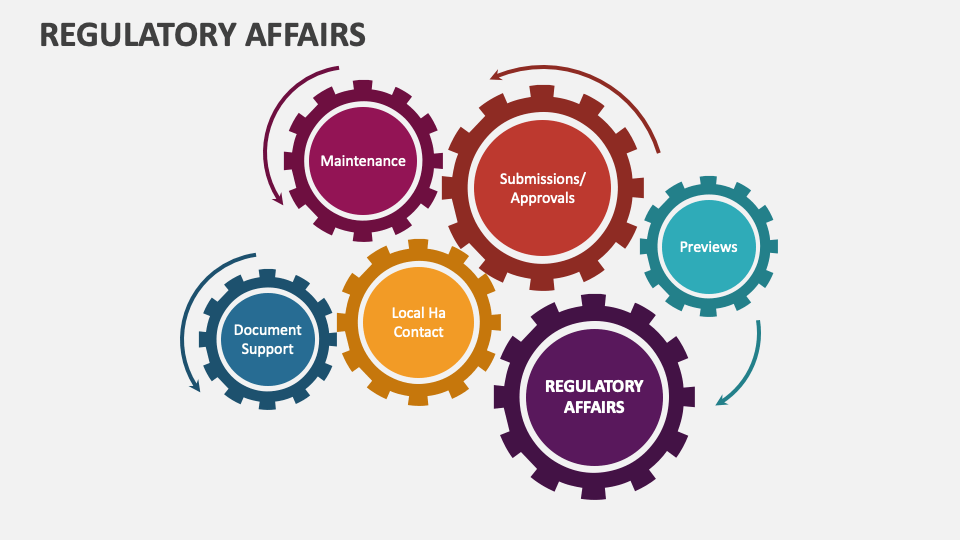Common Misconceptions About Regulatory Affairs Explained
Common Misconceptions About Regulatory Affairs Explained
Blog Article

Regulatory affairs is a field that often comes with a variety of misconceptions, leading many to have a skewed understanding of its true nature and importance. Often viewed as a bureaucratic hurdle, regulatory affairs plays a crucial role in ensuring that products, especially in the healthcare and pharmaceutical industries, are safe, effective, and accessible to the public. The truth is, regulatory professionals are vital to the development and approval process, bridging the gap between innovation and compliance with complex regulations.
Many people assume that regulatory affairs only involves paperwork and approvals, but the reality is much more nuanced. Professionals in this field engage in strategic planning, interpretation of guidelines, and collaboration with multiple stakeholders, including researchers, manufacturers, and regulatory agencies. By demystifying these common misconceptions, we can gain a clearer understanding of how regulatory affairs can contribute to advancing public health and supporting the development of life-saving therapies.
Understanding Regulatory Affairs
Regulatory Affairs is a pivotal field that ensures organizations comply with the stringent laws and regulations governing various industries, primarily in pharmaceuticals, biotechnology, and medical devices. Professionals in this area serve as a bridge between the organization and regulatory bodies, facilitating the approval and monitoring processes of products meant for public consumption. Their work is essential in maintaining safety, efficacy, and quality standards, thus protecting public health and the environment.
The role of Regulatory Affairs extends beyond mere compliance; it involves strategic planning, communication, and scientific evaluation. Regulatory professionals must have a comprehensive understanding of the complex regulatory landscape, including local, national, and international regulations. This includes navigating the requirements set forth by agencies like the FDA in the United States and the EMA in Europe, which differ in their processes and expectations. Their expertise is crucial in guiding companies through the intricate path from product development to market entry.
In addition to regulatory compliance, these professionals engage in the continuous monitoring of existing products, ensuring they remain in line with evolving regulations. They contribute to the development of product labeling, promotional materials, and risk management strategies. By staying informed about regulatory changes and industry trends, Regulatory Affairs experts help companies adapt and innovate, ultimately playing a vital role in the advancement of public health initiatives while fostering responsible business practices.
Myths vs. Reality
One common myth about regulatory affairs is that it primarily focuses on ensuring products are safe for consumers. While safety is a crucial aspect, regulatory affairs encompasses a broader range of responsibilities, including compliance with various laws, submission of documentation for approval, and ongoing monitoring of products after they reach the market. Professionals in this field must navigate complex regulations that vary by region and product type, highlighting the multifaceted nature of their work.
Another misconception is that regulatory affairs is a one-time process that only occurs at the beginning of a product's life cycle. In reality, regulatory affairs professionals are involved throughout the entire product life cycle, from development and clinical trials to post-market surveillance. They ensure that ongoing changes in regulations and standards are adhered to, which means their role is continuous and evolves as new laws and guidelines emerge.
Regulatory Affairs Program
Lastly, many believe that regulatory affairs is only relevant for pharmaceuticals and medical devices. However, the scope extends beyond these categories to include food products, cosmetics, and even certain chemicals. Consequently, the expertise of regulatory professionals is essential across various industries, making their role vital to public health and safety in a much wider context than many people realize.
The Importance of Regulatory Compliance
Regulatory compliance is crucial for businesses operating in highly regulated industries. It ensures that companies meet the necessary legal standards set by governmental and international bodies, which helps maintain public safety and trust. When organizations prioritize regulatory affairs, they not only protect themselves from potential legal repercussions but also enhance their reputation among consumers and stakeholders.
Non-compliance can lead to severe consequences, including financial penalties, product recalls, and damage to a company's brand. In some cases, it can even result in the shutdown of operations. By adhering to regulatory standards, companies can avoid these risks while also fostering innovation and competitiveness. Understanding and implementing compliance measures can ultimately lead to more efficient processes and improved product quality.
Moreover, regulatory compliance serves as a framework for ethical business practices. It encourages companies to operate transparently and responsibly, which is essential in building long-term relationships with customers and partners. By aligning their operations with regulatory requirements, organizations can pave the way for sustainable growth while contributing positively to the communities they serve.
Report this page